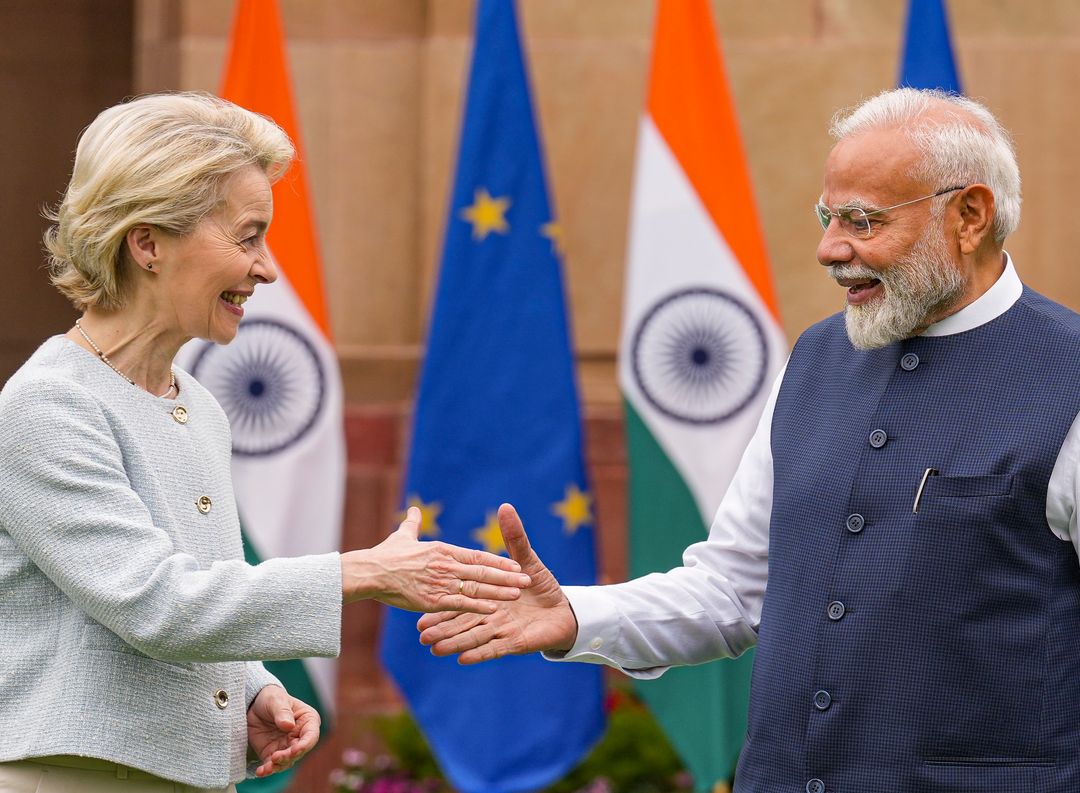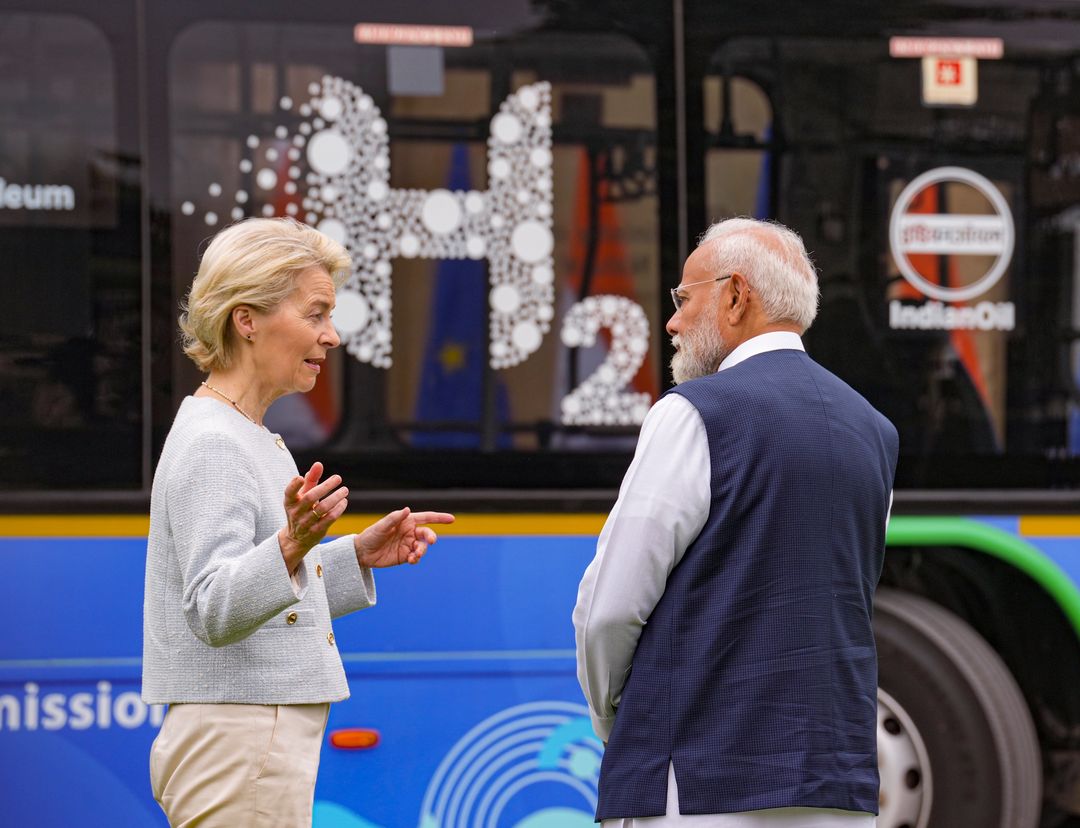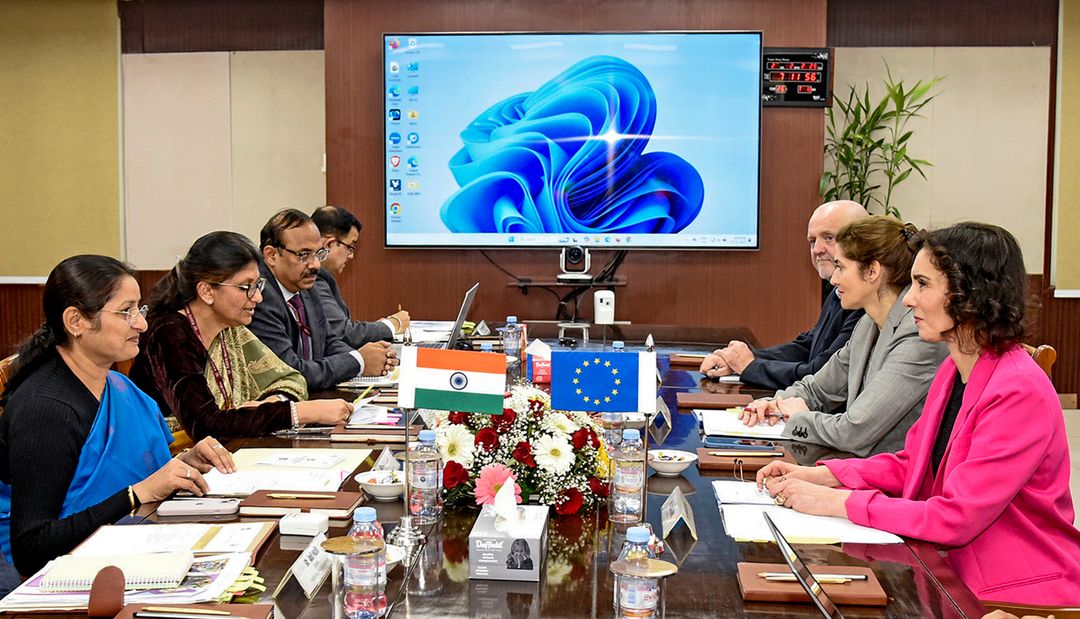
New Delhi, Feb 28: Prime Minister Narendra Modi and European Commission President Ursula von der Leyen have set an ambitious target to conclude a comprehensive India-EU free trade agreement (FTA) by the end of 2025. The decision comes amid concerns over potential global economic disruptions due to possible tariff hikes under a new Trump administration.
In high-level discussions, both leaders also committed to enhancing bilateral defence cooperation, particularly in the Indo-Pacific region. Von der Leyen announced that the European Union (EU) is keen on establishing a security and defence pact with India, similar to its existing partnerships with Japan and South Korea.
Major Trade Deal in the Making After 17 Years
The proposed India-EU free trade deal, touted as one of the largest of its kind, has been in the works for over 17 years. Initial negotiations began in 2007 but were stalled in 2013 due to differences in trade ambitions. Talks resumed in June 2022, with the EU pressing India to lower tariffs on automobiles, wine, and agricultural goods.Modi confirmed that a roadmap for strengthening the India-EU partnership beyond 2025 would be finalized and officially launched at the upcoming India-EU Summit, scheduled to take place in India later this year.
“We have prepared a blueprint for collaboration in the areas of trade, technology, investment, innovation, green growth, security, skilling, and mobility,” Modi stated. “We have directed our teams to conclude a mutually beneficial bilateral free trade agreement by the end of 2025.”
Echoing his sentiment, Von der Leyen remarked, “We have tasked our teams to build on this momentum and finalize our free trade agreement before the end of 2025. We expect our trade negotiators to surprise us.”
India-EU Strengthen Defence and Security Cooperation
Defence and security were also high on the agenda, with Modi calling the growing cooperation between India and the EU a symbol of “mutual trust.” Both sides agreed to advance collaboration in cybersecurity, maritime security, and counterterrorism.Recognizing the Indo-Pacific’s strategic importance, the EU has decided to join India’s Indo-Pacific Oceans Initiative, a move Modi welcomed.
Von der Leyen emphasized the importance of maritime security, calling the Indian Ocean a “lifeline for global trade.” She underscored the need for joint naval exercises and protecting undersea data cables that facilitate connectivity between India and Europe. The EU is also exploring an expansion of joint naval operations, following its successful missions in the Gulf of Guinea and the Red Sea.
Investment, Connectivity, and Green Energy in Focus
Alongside the trade deal, India and the EU are also advancing negotiations on an Investment Protection Agreement and geographical indications to bolster trade and investments.On connectivity, Modi reiterated India’s commitment to the India-Middle East-Europe Economic Corridor (IMEEC), which he described as a key driver of global commerce and sustainable growth.
Both leaders also emphasized joint research initiatives in emerging technologies, particularly EV batteries, marine plastics, and green hydrogen—critical areas in the global push for sustainability.
Visa Reforms to Benefit Indian Talent
In a move to enhance mobility, Modi welcomed the EU’s new visa cascade regime, which is expected to facilitate smoother access for skilled Indian professionals seeking opportunities in Europe.Looking Ahead
The India-EU strategic partnership, rooted in democratic values and shared economic interests, is now poised for significant expansion. With the deadline set for the free trade agreement, both sides are eager to finalize a deal that could redefine global trade dynamics.As geopolitical uncertainties loom, a strengthened India-EU alliance could serve as a stabilizing force, ensuring economic resilience and strategic security in an increasingly complex world.

